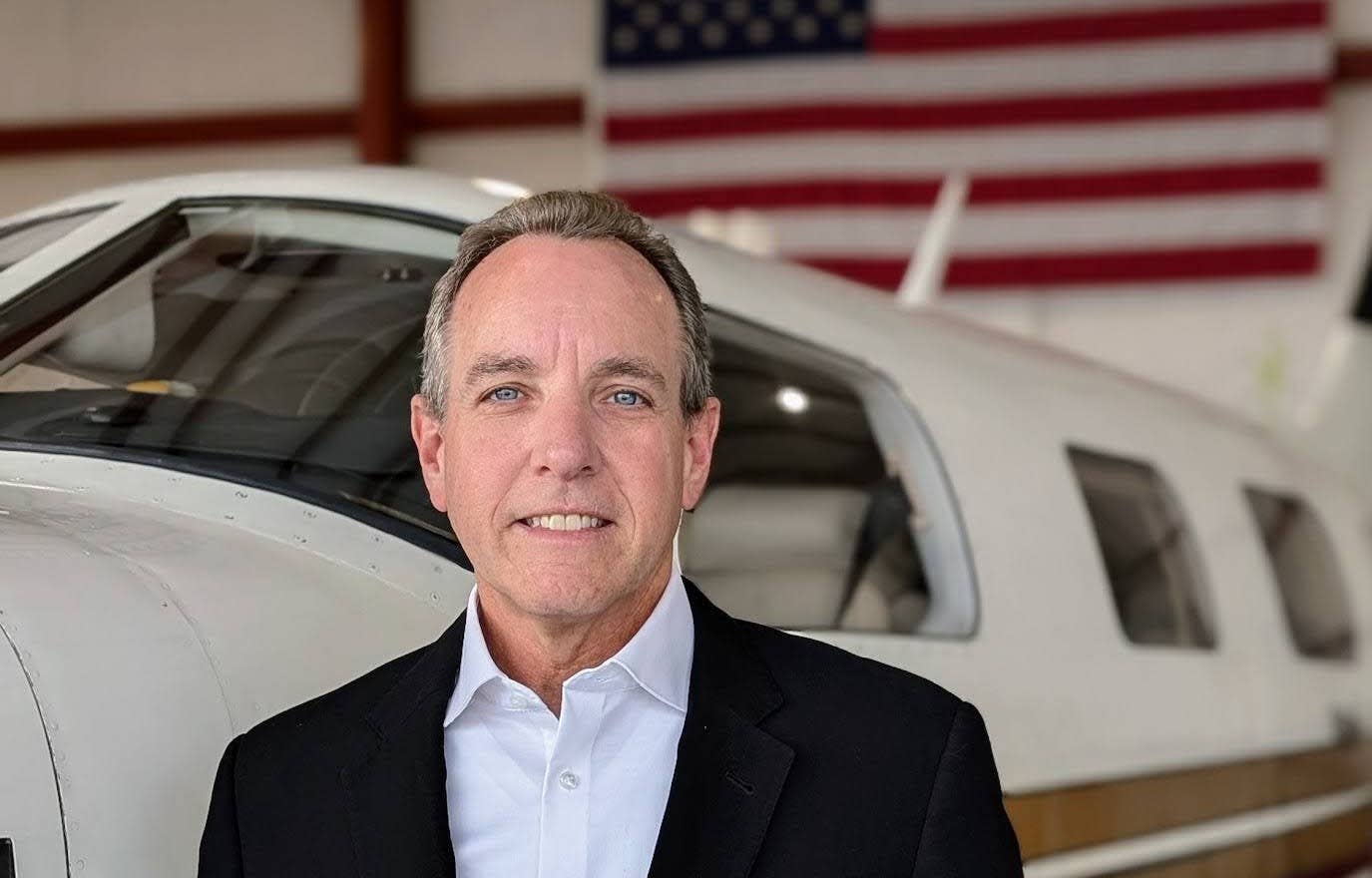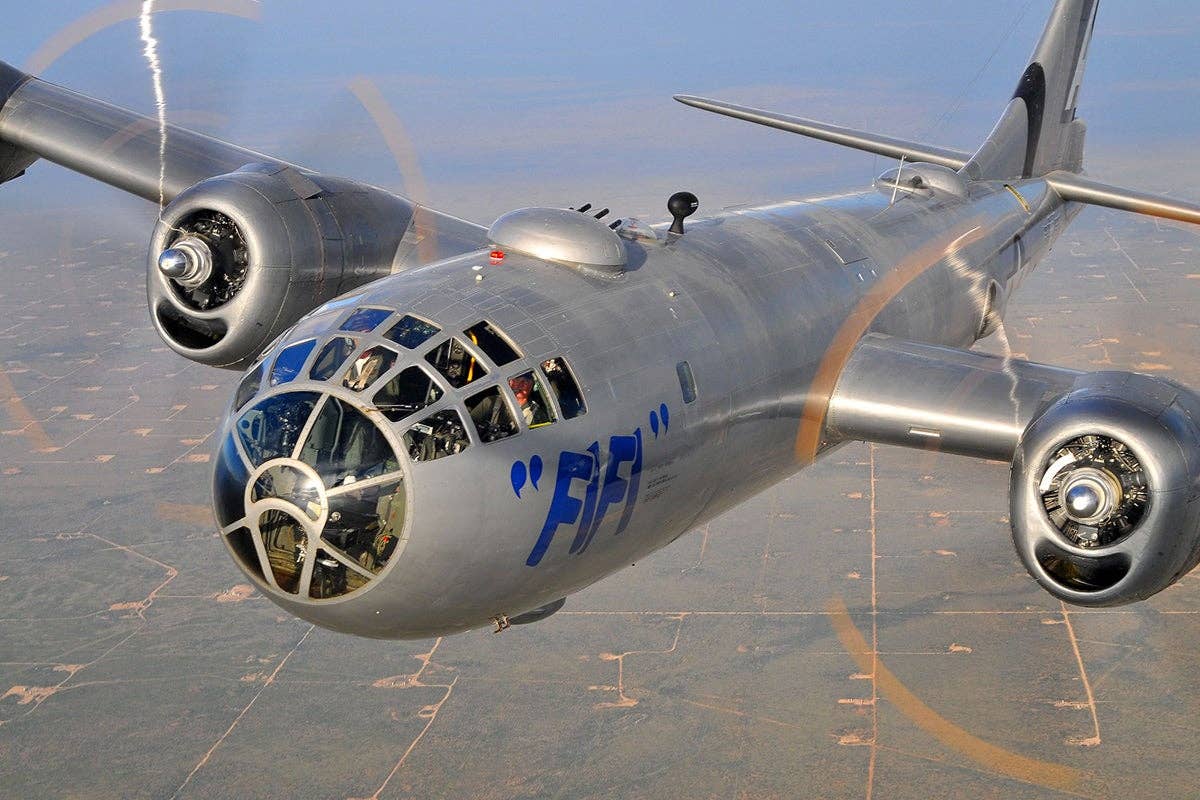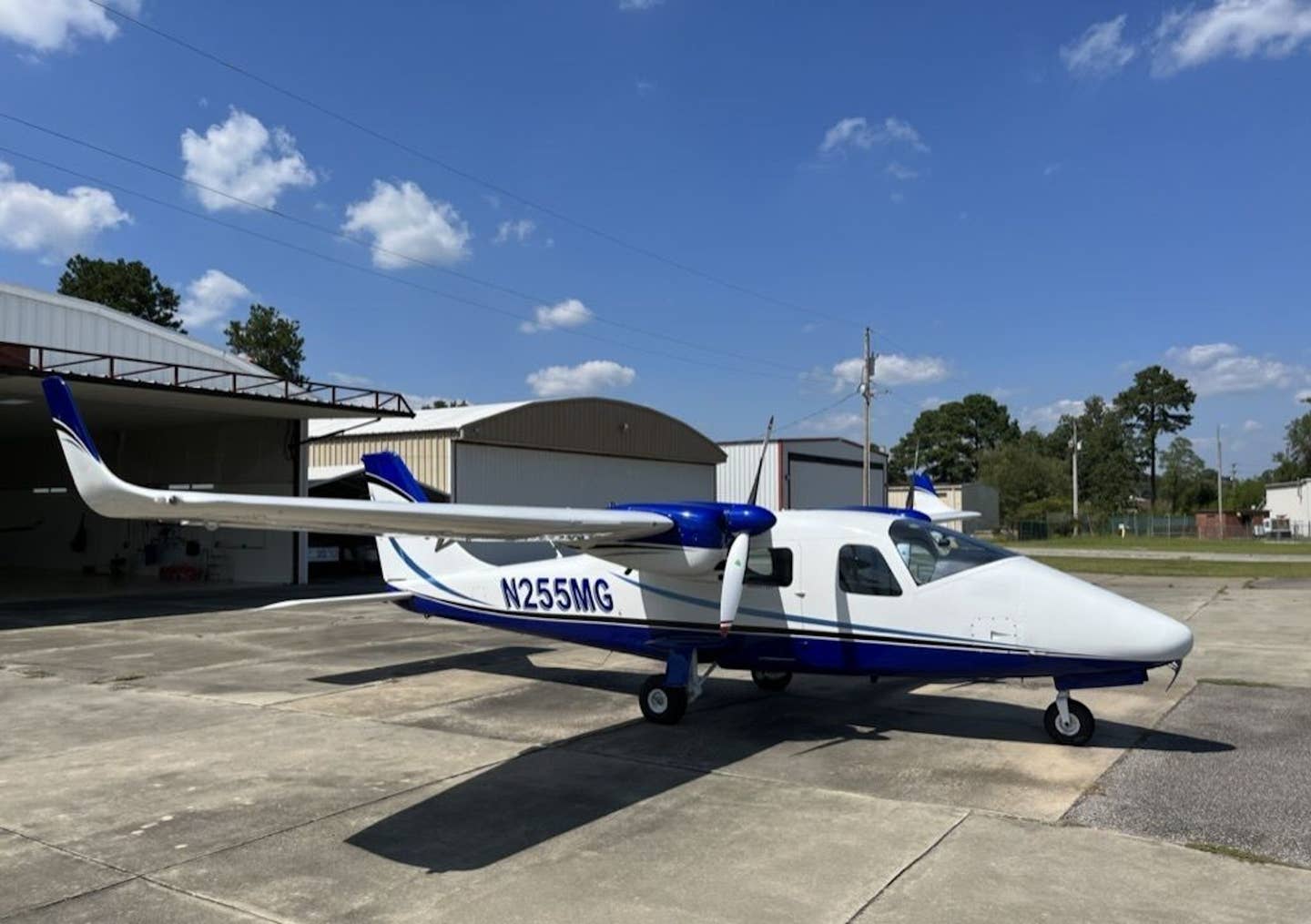Skyryse Calls New Fly-by-Wire Helicopter a ‘Game-Changer’
The company says its new technology makes helicopter flight safer with an innovative design.

Skyryse One features a proprietary operating system designed to provide simplified control and an aircraft-agnostic, triply-redundant, fly-by-wire system. [Courtesy: Skyryse]
One of the first things an airplane pilot learns when they start training to fly helicopters is that helicopters require much more attention as they have more controls: cyclic, control stick, and two rudder pedals.
And they have always had these controls since Sikorsky invented them in 1942, said Ray Wert, vice president of communications and marketing for Skyryse, the manufacturers of the Skyryse One, the first production fly-by-wire helicopter piloted with a single control stick and two touchscreens.
“Our hope is that it will truly be a game-changer,” said Wert.
Skyryse, founded in 2016 in Los Angeles and headquartered in nearby El Segundo, California, said its mission is to “bring about a new era in flight, where fatalities are near zero and where piloting any aircraft is simple and safe.”
The company claims to have done that with the invention of the SkyOS system—a computer that gives pilots greater control by simplifying the management of an aircraft during standard flight operations, inclement weather, and emergencies.
“The Skyryse One might look familiar on the outside, but the similarities to any other aircraft end there,” said Mark Groden, founder and CEO of Skyryse. “Since the invention of vertical flight, pilots have juggled four controls simultaneously, using both hands and both feet just to keep it airborne—until today.”
How It Works
According to the company, the Skyryse One features the SkyOS, a proprietary operating system that offers simplified control and an aircraft-agnostic, triply-redundant, fly-by-wire system.
Wert noted that since the invention of vertical flight pilots have juggled four controls simultaneously, using both hands and feet to keep the aircraft airborne. This new flight control system features dynamic computers that are interactive and “provide a level of aviation safety that is usually only found in fighter jets and airliners.”
This is not an autopilot, according to Wert, as the company realized a bolt-on autopilot would not solve the challenges of flying a helicopter—hence the need for the clean-sheet design.
Among the features it includes are automatic auto rotation and auto glide, and flair and set-down when the computers detect a power failure.
“The pilot in command can also do an auto pickup and set-down as well as start-up with a single swipe of a finger,” said Wert. “It has hover assist mode, whereas conventional helicopters require a complex synchronization of all four controls. We went with the triply-redundant fly-by-wire system to create simplified controls to remove the hundreds of points of potential aircraft failure in the old mechanical controls that [have] been in use since the 1940s. It gives you more room in the cockpit as there are no more pedals or dual cyclic or collective.”
Wert said the certification process is underway, and it is his understanding that the usable load for the Skyryse One will allow for it to carry four people and a full tank of gas.
“When you remove the mechanical parts, you save a lot of weight," he said. "Our hope is that it will truly be a game-changer.”
In addition to being significantly easier to fly than present vertical lift aircraft on the market, the Skyryse One will be fully IFR capable with an introductory price of $1.8 million.
Other first-of-its-kind features found in the Skyryse One:
• Flight system: It offers full four-axis flight control with the SkyOS operating system and fly-by-wire.
• Dynamic envelope protection: It continuously combines pilot inputs and monitors environmental conditions, aircraft status, and flight parameters to keep the aircraft flying safely.
• Fully automated autorotation: Skyryse SkyOS to quickly recognize a power failure and automatically enter into an autorotation, automating the glide, flare, and set-down, with the pilot in control.
• Auto-pickup and set-down: The Skyryse One will auto-pickup and set-down at a pilot’s command with just one simple swipe on the screen.
• Hover assist: Traditional helicopters require a complex synchronization of all four controls. Skyryse SkyOS simplifies all that, assisting pilots by maintaining a hover at their command without using hands and feet.
Because the Skyryse One is continuously stabilized by SkyOS, it will be more steady than other vertical lift aircraft. The company said the pilot can “let go of the controls at any time, and the aircraft will stay inside a safe flight envelope.”
• Swipe-to-start: Traditional helicopters are also started through a lengthy multistep start-up procedure. The Skyryse One automates all of that, allowing a pilot to start the engine by swiping right on the screen.
The Skyryse One will be fully certified for IFR at half the cost of an IFR-certified helicopter.
How to Get One
To place an order, visit the Skyryse website to put down a fully-refundable, nontransferable reservation for $2,500. The company said its first customers will lock in their Skyryse One First Edition aircraft for an introductory price of $1.8 million, excluding any additional interior or livery customizations selected.
Beyond these First Edition units, the Skyryse One cost will be determined by position in line and production timing. Skyryse will begin accepting traditional deposits from First Edition customers as their place in line comes up during production, with first deposits to coincide with EAA AirVenture at Oshkosh, Wisconsin, in July. Additionally, Skyryse will also be extending simulator demonstration opportunities to reservation holders who sign up ahead of Oshkosh.
Reservations for the Skyryse One First Edition are open at Skyryse.com.

Subscribe to Our Newsletter
Get the latest FLYING stories delivered directly to your inbox






